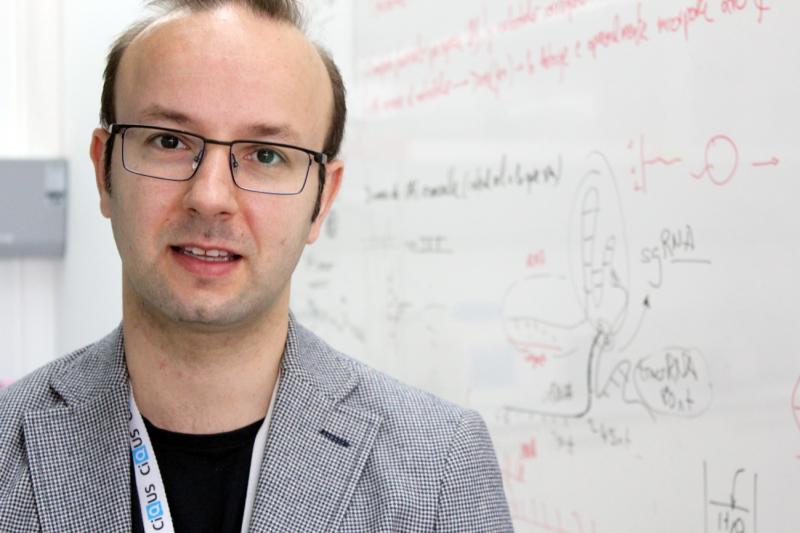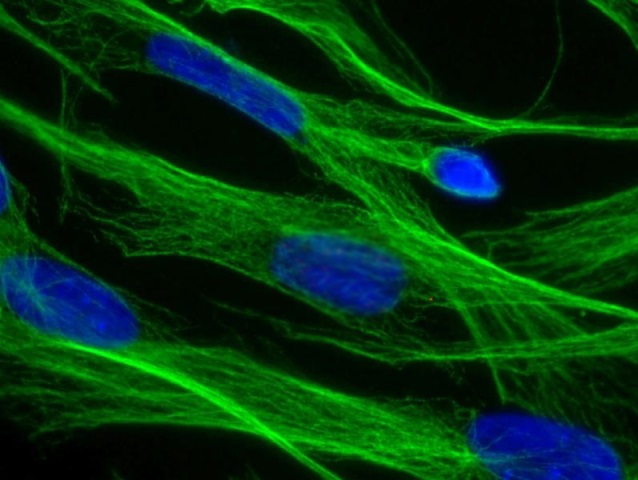CiQUS researcher has been awarded with a Young Investigator Grant at the 2017 International Competition promoted by the Human Frontiers Science Program Organization (HFSPO).
 Thirty million dollars to support 3% of the most outstanding applications. Following a one year rigorous selection process, CiQUS researcher Javier Montenegro has obtained one of the 30 grants awarded by the Human Frontiers Science Program Organization (HFSPO) among more than 1,000 applications from 60 different countries.
Thirty million dollars to support 3% of the most outstanding applications. Following a one year rigorous selection process, CiQUS researcher Javier Montenegro has obtained one of the 30 grants awarded by the Human Frontiers Science Program Organization (HFSPO) among more than 1,000 applications from 60 different countries.
HFSP is a Biology international research support program that promotes interdisciplinary collaboration between institutions from different continents. The HFSP encourages the study of complex biological unresolved problems. The Young Investigator Grant supports novel collaborations between teams of scientists working in different continents. This new grant, under the topic «Complex mechanisms in living organisms», emphasizes the value of the most risky and innovative projects.
A cellular cytoskeleton within the next three years
This new project, led by the CiQUS’s PI Javier Montenegro (ERC Starting Grant 2015), will be developed within the next three years in collaboration with two researchers from America and Asia: Neal Devaraj (University of California) and Toshihide Takeuchi (University of Osaka). This is a high-risk approach, which will try to fabricate a key cellular organelle: the cytoskeleton. As the human skeleton gives form to the human body, the cytoskeleton shapes and structures cells, allowing them to perform complex functions such as moving, dividing or transporting substances.
The emergence of the cytoskeleton - an intricate network of fibers growing inside the cells - was a key step in the evolution of primitive cells to evolve. Now, the project coordinated from the University of Santiago de Compostela will use Synthetic Chemistry to investigate this biological phenomenon. Therefore, this artificial cytoskeleton will be constructed using synthetic and robust building blocks. The international team of researchers will design and synthesize in the laboratory an artificial cytoskeleton with the aim to  reproduce the natural processes of formation and destruction of this network of fibers. This controlled and artificial simple model will help to get a better understanding of the fibers growing/collapsing behavior in confined spaces.
reproduce the natural processes of formation and destruction of this network of fibers. This controlled and artificial simple model will help to get a better understanding of the fibers growing/collapsing behavior in confined spaces.
The CiQUS team will be involved in the preparation of the nanotubes that make up the cytoskeleton, while its partners, based in San Diego (California, USA) and Osaka (Japan), will prepare the membranes that contain the fibers and proteins which will act as the catalysts carriers for the formation or destruction of this network. As explains Dr. Montenegro, "fibers, membranes and proteins: by coupling these three components we hope to obtain a minimal cells that allow us to get a better understanding about how the cytoskeleton works". Dr. Montenegro notices the potential scope of this research: "the creation of hybrid synthetic cells will broaden our understanding of how and why complex living cells evolved on our planet, which is a major scientific challenge," he says.


